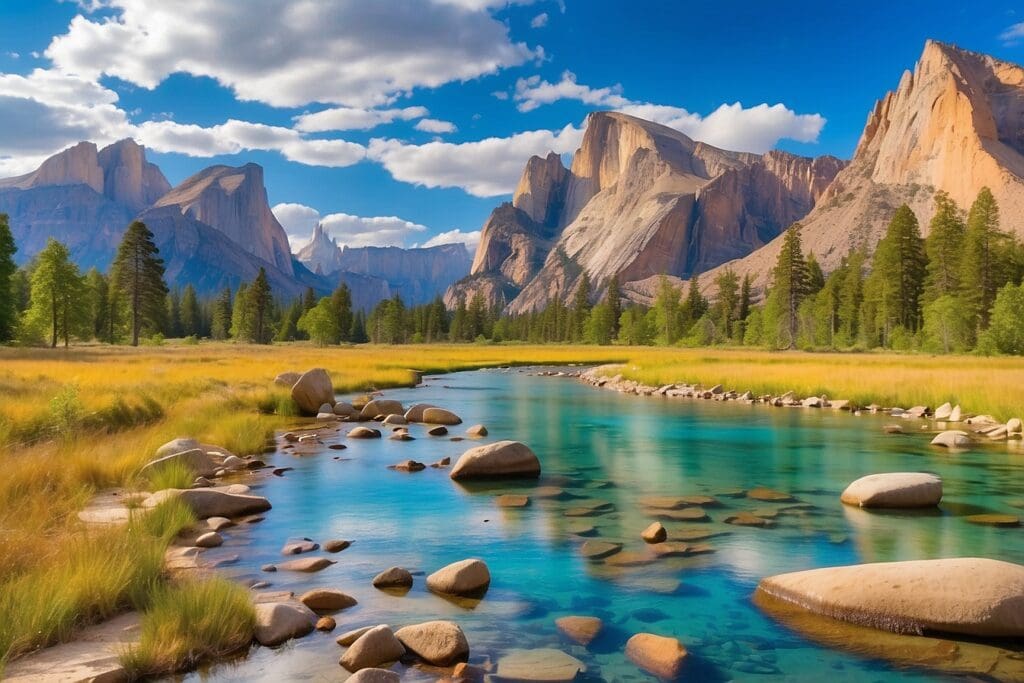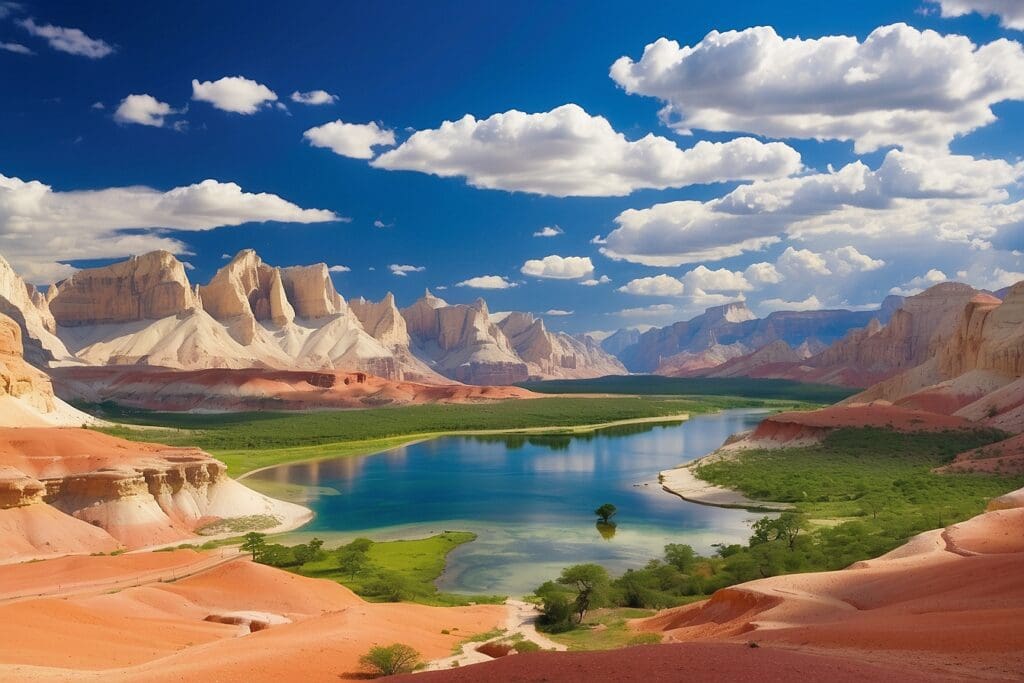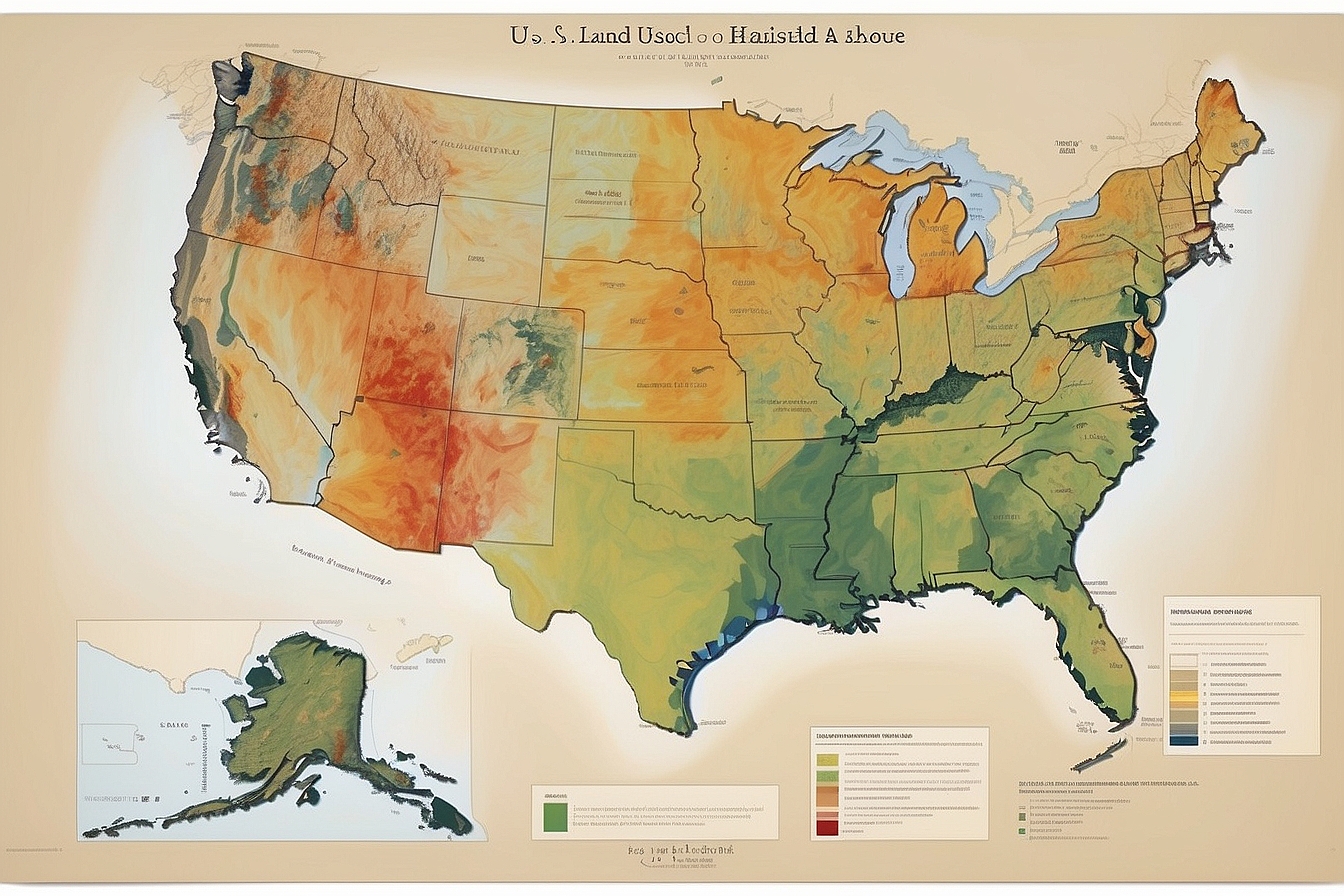Many of us use the holidays as a time to stay home and rest, but some of us use the holiday season as an opportunity to travel. If you are one with a travel bug, try taking the environment into consideration with your trip planning this year. With over 390 National Park Service areas covering more than 84 million acres across the United States, and even more state parks and other protected areas, the U.S. offers a wide range of natural beauty to be explored. These protected areas need our support, so making a trip or buying a National Park pass is a good way to give back to our land. You can add to your environmental fervor by making your trip an eco-friendly one! Ecotourism is a fairly new trend in the tourism industry that focuses on responsible travel that conserves the environment and supports the livelihood of local people.1 Fortunately, the ecotourism industry is working with our protected lands to offer opportunities for you to partake in both.
The National Park Service

The National Park Service was created in 1916 to “conserve the scenery and the natural and historic objects and wildlife therein, and to provide for the enjoyment of the same in such manner and by such means as will leave them unimpaired for the enjoyment of future generations.”2 Today, it is the United States federal agency that manages all National Parks, many National Monuments, and other conservation and historical properties. The National Park System is a collection of areas managed by the National Park Service that encompasses about 84 million acres in almost every state (Delaware is an exception). The System uses over 20 different titles for the areas it manages including National Park, National Monument, National Lakeshore, National Historic Site, National Preserve, and even the White House. The National Park Service offers a great interactive tool at http://www.nps.gov/ allowing you to click on any given state to find a list of its parks. Once you discover how easy it is to find a park close to you, consider buying a pass. Go to http://www.nps.gov/fees_passes.htm to find one that appeals you.
Ecotourism
According to the principles of ecotourism, financially supporting our National Parks is one of the first steps you can take to make your trip environmentally responsible. It is about uniting conservation, communities, and sustainable travel. Some of the basic principles of ecotourism include: minimize impact, build environmental and cultural awareness and respect, provide positive experiences for both visitors and hosts, provide direct financial benefits for conservation, provide financial benefits and empowerment for local people, and raise sensitivity to host countries’ political, environmental, and social climate.3 Greeniacs offers a guide, “Take an Eco-Vacation”, that will walk you through all of the necessary steps for eco-trip planning at Take an Eco Vacation. For specific eco-tours or trips to our National Parks, check out the following resources:
• Acadia National Park Ecotourism Travel:
http://www.acadianationalpark.com/ecotourism/
• Rocky Mountain National Park Ecotourism:
http://www.allrockymountain.com/ecotourism/
• Yellowstone National Park Ecotourism:
http://www.yellowstoneparknet.com/
• Grand Teton National Park Ecotourism:
http://www.jacksonholewy.net/ecotourism/
• Glacier National Park Ecotourism:
http://www.allglacier.com/ecotourism/
• US Eco Tours and Ecotourism Vacations in the United States:
http://ecotourism.gordonsguide.com/united-states.cfm
• Ecotourism Portal, Free Resources for Ecotourists and Ecotourism Providers:
http://www.ecotourism.cc/
At a time when both our economy and our environment need support, taking an eco-friendly trip within our National Park system is a good way to allow for both. Fortunately this trend is on the rise. In the U.S. on federal lands alone, there are an estimated 900 million visits per year to national forests, parks, monuments, historic sites, recreation areas, protected areas, wildlife refuges, reserves, and management areas—most of these visits include sightseeing, hiking, wildlife observation, swimming, snorkeling or other forms of ecotourism.4





